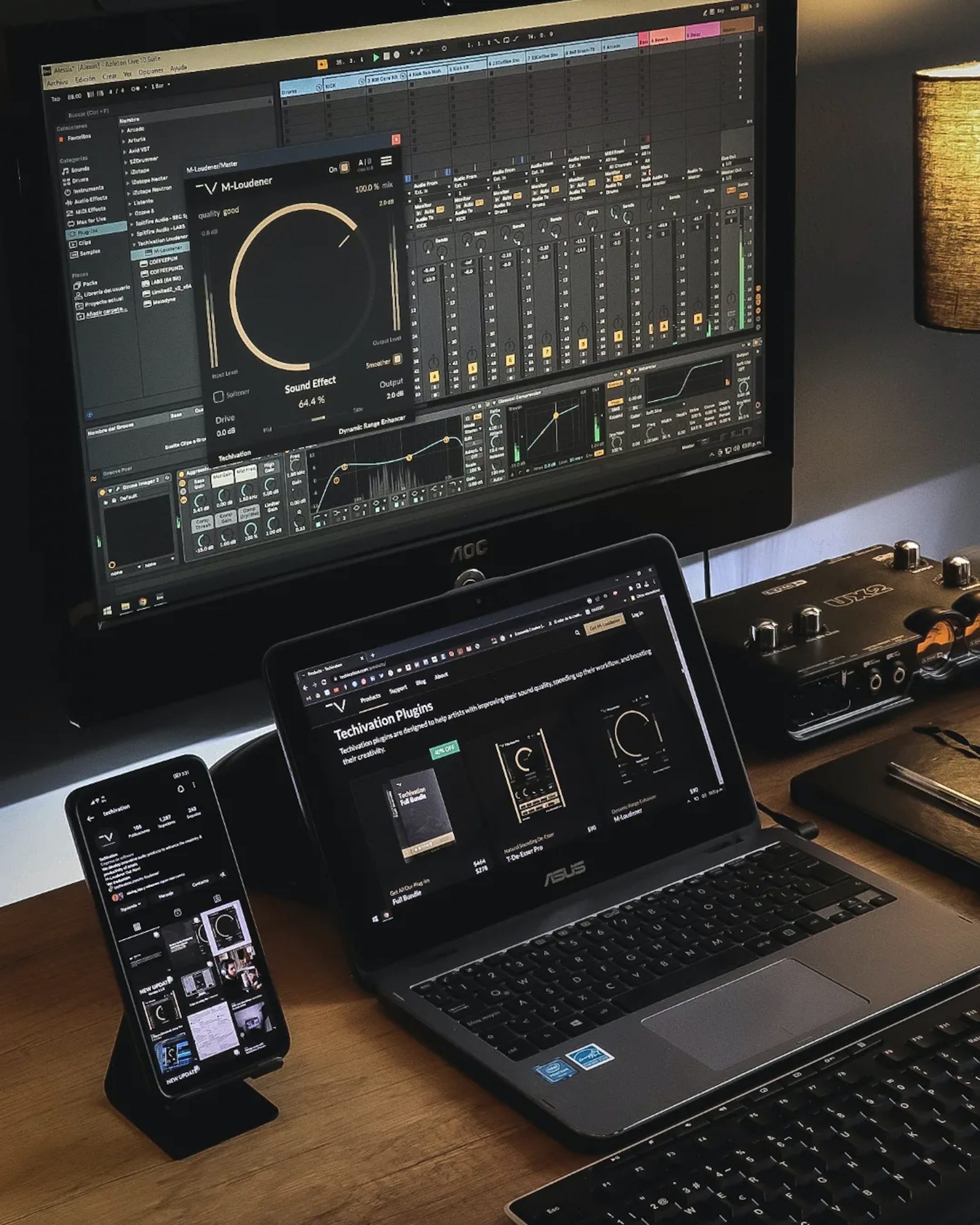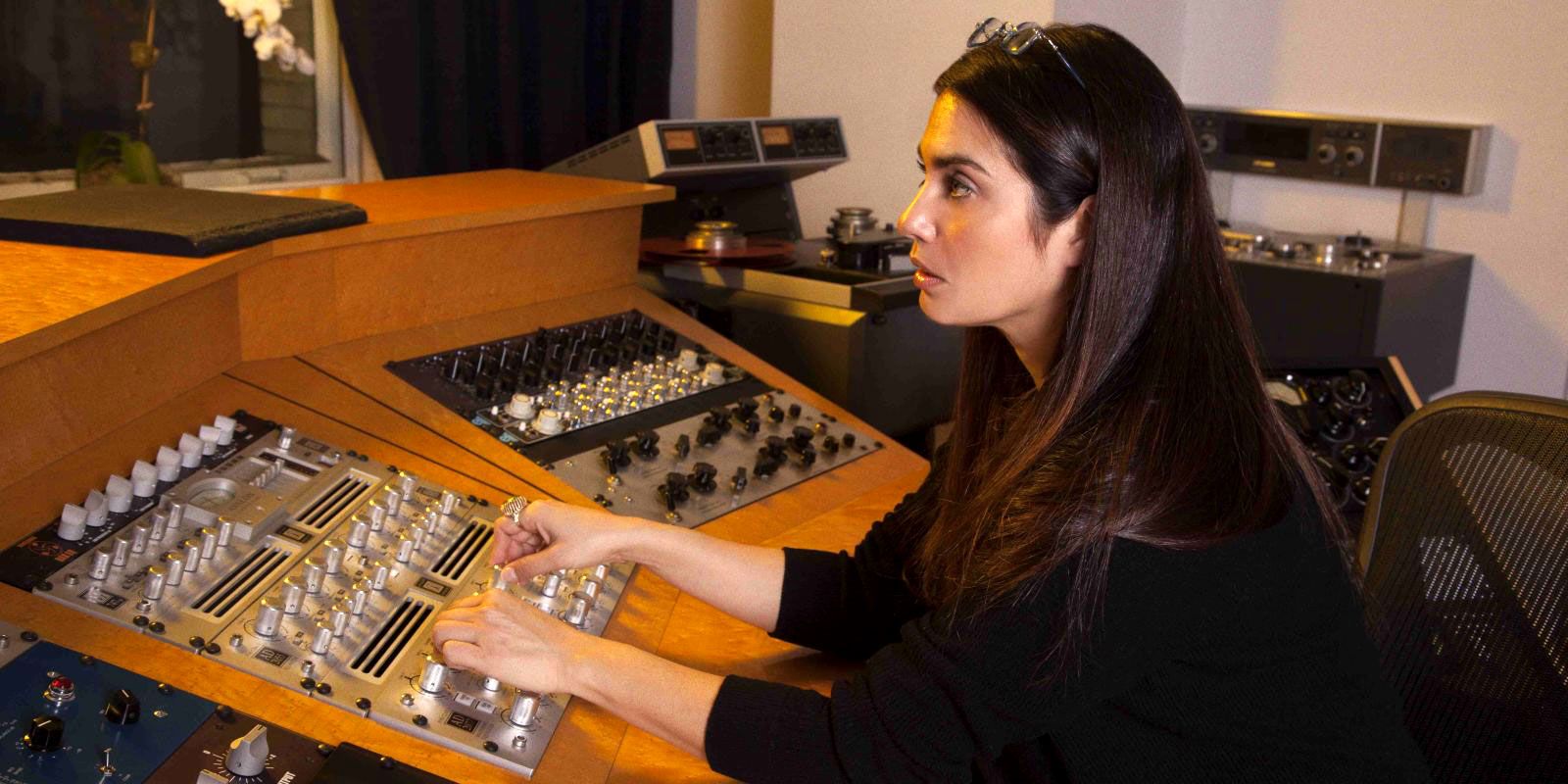What Is Mastering And Why Is It So Important?
If you’re involved in the weird, and wonderful world of music, you’ve probably heard the term “mastering” floating around. But, what does it mean when someone casually flexes that they’ve sent their track off to be mastered? Simply put, it’s the final touch (chef’s kiss); the 5-10% sparkle at the end that’s often taken for granted but is nonetheless essential for any artist out there that wants to be taken seriously.

Table of Contents
The Basics: What is mastering?
Think of mastering as a sort of zoomed-out approach that looks at your album as an assembled jigsaw puzzle rather than obsessing over the individual pieces. This is why the songs on your favourite record sound cohesive.
Mastering a song takes place after the painstaking mixing process, and is usually done by a different individual. Mastering engineers are specialists whose entire career revolves around audio mastering. It’s useful to get a separate engineer on board so that they can breathe new life into the tracks. Often, a mixing engineer would have listened to the same songs so many times, that it might be a bit difficult for them to distinguish which parts need to be balanced out.
This process deals with equalisation, i.e. making sure that the song works as a whole. A mastering engineer recognises which elements need to be dialled back, and which ones need to be higher in the overall mix. In the case of a full album, the engineer makes sure that the project as a whole is consistent, and that the tracks are uniform when it comes to loudness, frequency, and quality. They will sprinkle some magic fairy dust over the audio to make sure that the final product is a quality record that you, and your team are proud of.

Mixing vs Mastering: What’s the difference?
These two terms are sometimes used interchangeably, but as any mastering engineer will inform you, this is completely, and utterly wrong (they probably won’t be too happy about it either!). Simply put, a mixing engineer deals with the details while a mastering engineer perceives everything as a whole.
Let’s break it down. A song is made up of separate tracks on a digital audio workstation (think Logic, Protools etc). Typically, a song has multiple guitar tracks, drum tracks, vocal tracks, and whatnot. During the mixing process, each separate track is scrutinised. Effects are added while the EQ, gain, and volume are manipulated. Each track needs to stand out, and hold its ground. Each detail needs to be sorted out. It’s a meticulous process that can sometimes lead to forty plus mixes!
Audio mastering a song is the final step that (literally) takes the tune to the next level, and prepares it for distribution. There may be different masters depending on the distribution platforms that the artist, and label, opt for (e.g. Spotify, vinyl, CD etc). The engineer unifies the sound by adding broad equalization, applying compression, limiting certain peaks, and making sure that your project is optimised, and reaches its full potential.
Final notes
Mastering engineers are experts in the technical requirements of delivering your music in the right formats for all the different services out there. They’re real-life sound wizards that make all the tunes in your album mesh together like one giant jigsaw puzzle, enabling your fans to listen to your album, and fully dive deep into the mesmerising musical experience that you intended your album to be.
Photo credit: Techivation
Janelle Borg
Janelle knows a thing or two about the music industry. Having been involved in the industry since the age of 13, she's now involved in a variety of music-related projects and is always keen to share industry tips 'n' tricks with fellow musicians.
The Rise of Fan Subscriptions in the Changing Music Landscape
Discover the power of fan subscriptions in the ever-evolving music industry. Find out how independen
The Ultimate Guide to Instagram Broadcast Channels: A Game-Changer for Musicians
Looking for a new way to engage with your fans? Instagram Broadcast Channels allow artists and creat
What Are Tracking Pixels And Why Are They So Important For Artists?
This article explores how artists can use tracking pixels to leverage their audience, reach lookalik





